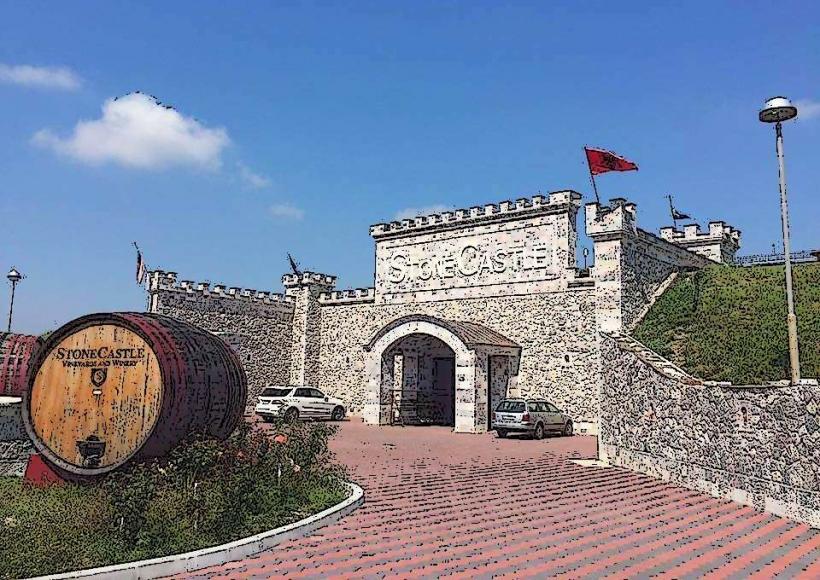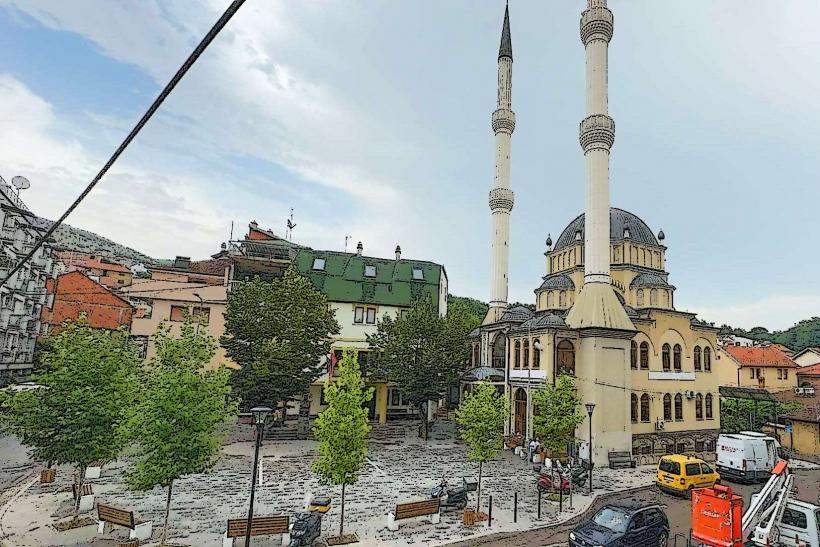Information
City: RahovecCountry: Kosovo
Continent: Europe
Rahovec (also known as Orahovac in Serbian) is a town and municipality located in the southern part of Kosovo, within the District of Gjakova. The town is situated at the foot of the Shar Mountains and near the Bistrica River, in an area known for its fertile land and agricultural significance. Rahovec is known for its wine production and agricultural products, as well as its vibrant ethnic and cultural diversity.
Geography and Location
Rahovec is located in the western part of Kosovo, approximately 20 kilometers west of Gjakova and around 60 kilometers from Pristina, the capital of Kosovo. The surrounding landscapes include fertile plains and the Shar Mountains, providing excellent conditions for agriculture, especially viticulture.
History
Rahovec has a long and rich history that spans several centuries, influenced by various civilizations, including the Illyrians, Romans, and the Ottoman Empire. Throughout the centuries, the town has been a center of trade and agriculture.
Ottoman Period: During the Ottoman era, Rahovec became known for its agricultural output, especially its vineyards. The Ottomans introduced new agricultural techniques and cultivation practices that laid the foundation for the region's future prominence in viticulture.
20th Century: In the 20th century, Rahovec, like the rest of Kosovo, was part of Yugoslavia until the breakup of the federation. It faced significant challenges during the Kosovo War in the late 1990s, particularly ethnic tensions and conflicts that left lasting impacts on the town. After the war, Rahovec became part of the newly declared Republic of Kosovo.
Ethnic Composition
Rahovec is predominantly populated by ethnic Albanians, with a smaller Serb community. The ethnic composition of the town, like much of Kosovo, has changed over time due to the events of the Kosovo War and subsequent migration patterns.
- Ethnic Albanians make up the majority of the population, and Albanian is the primary language spoken in the area.
- The Serb population in Rahovec, as in other parts of Kosovo, has seen a significant decline, especially after the war. However, there are still Serbian Orthodox Christian sites and historical remnants in the area.
Landmarks and Attractions
Rahovec is known for its natural beauty and agricultural importance, particularly its vineyards. Though not a major tourist hub, the town has several points of interest, both historical and cultural.
Rahovec Wine Region: The town is renowned for its wine production, with vineyards surrounding the area. Rahovec is often referred to as the "wine capital" of Kosovo due to its longstanding tradition of viticulture. Local wineries produce a variety of wines, and the area is an important agricultural center for Kosovo.
Bistrica River: Flowing through the town, the Bistrica River is an important natural feature of Rahovec. The river and surrounding landscapes contribute to the region's picturesque setting, with opportunities for outdoor activities like fishing and hiking.
Old Bridges and Ottoman Architecture: As a town with a history of Ottoman influence, Rahovec has several examples of Ottoman-era architecture, including old bridges, mosques, and fountains. These structures reflect the town’s historical significance during the Ottoman period.
Cultural Heritage: Rahovec has a rich cultural heritage, with many traditional events, festivals, and local customs that reflect the cultural identity of the Albanian population in Kosovo. The town is also home to several traditional Albanian houses and other examples of local architecture.
Economy and Agriculture
The economy of Rahovec is heavily based on agriculture, with the region known for its grape production and wine industry. Many families in the area have been involved in winemaking for generations. In addition to wine, the town also produces other agricultural goods, such as fruits, vegetables, and livestock.
Viticulture: Rahovec is known for its vineyards, which produce both red and white wines. The region’s wine industry is a significant part of Kosovo’s economy, and wine tours and tasting events are increasingly popular.
Agriculture: The fertile land in and around Rahovec is used for growing a wide variety of crops, including grapes, apples, pears, corn, and potatoes. Local farmers rely on traditional farming methods as well as modern agricultural techniques to grow and harvest these crops.
Trade and Industry: In addition to agriculture, Rahovec is also involved in local trade, with shops, markets, and small industries supporting the local economy. The town’s proximity to Gjakova and Pristina provides opportunities for trade and economic exchanges.
Modern-Day Rahovec
Today, Rahovec is a developing town in Kosovo, with a focus on agriculture, particularly wine production. The town is also part of the wider Kosovo Wine Route, which attracts visitors interested in exploring the region’s wineries and learning about the winemaking process. While Rahovec has faced challenges due to the political and economic instability of the region, it is a key player in Kosovo’s agricultural sector.
The town has made efforts to improve its infrastructure and services, with some investment in roads, public facilities, and education. Rahovec also hosts various local festivals and events that celebrate Albanian culture and traditions.
Challenges and Opportunities
Like many parts of Kosovo, Rahovec faces challenges related to economic development, governance, and ethnic relations. However, the town’s agricultural base provides significant opportunities for growth. The wine industry, in particular, has great potential to attract tourists and boost the local economy.
Additionally, with the growing importance of Kosovo's independence and recognition in international affairs, Rahovec and other towns in the region are working to modernize their infrastructure, improve local governance, and integrate more with the broader global economy.
Conclusion
Rahovec is a town rich in cultural heritage, with a strong agricultural economy, particularly focused on wine production. Its strategic location in southern Kosovo, combined with its historical and natural significance, makes it an important part of the country’s social and economic fabric. While it faces challenges in terms of political and economic development, Rahovec has the potential for growth, especially through its wine industry and agricultural exports. The town remains a key cultural and agricultural hub in Kosovo, preserving its traditions while adapting to modern changes.



